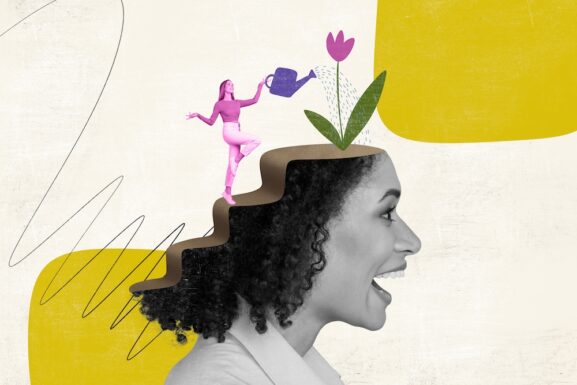So You Just Had A Ketamine Therapy Session – Now What?
After you’ve received ketamine therapy, you need to take certain steps to ensure that the process goes as smoothly as possible. While ketamine infusions are short-lasting, there can still be after-effects from the treatment. It’s important to plan for these potentials. In this article, we will describe what you should do after you’ve completed a ketamine therapy session. This is to ensure you can prevent any adverse effects or manage them should any arise. We will also detail how you can get the most out of your ketamine therapy.
Looking for ketamine therapy? Click here to find top rated ketamine clinics near you
Take It Easy On The Day Of Your Ketamine Session
Firstly, it is perfectly normal to feel sedated and low in energy after a ketamine therapy session. This is nothing to be concerned about. These after-effects will pass. However, you should avoid driving, operating heavy machinery, or making any important decisions until the day after your ketamine infusion. The next morning you should be feeling your normal self and not hindered by after-effects.
If you feel queasy or sick to your stomach, try laying down with your eyes closed. Try not to engage in any vigorous physical activity, as this could worsen these feelings.
RELATED: How Do Patients Feel After Ketamine Therapy? Medical Experts Weigh In
What To Eat And Drink After Ketamine Therapy
You can resume drinking water immediately after your session. Avoid drinking alcohol, however, until the following day. The effects of the alcohol might exacerbate any potential side effects. In terms of food, it’s best to start with mild foods and gradually return to your regular diet.
Advice on Medications and Drugs
You can resume all medications immediately after a ketamine therapy session. But it is best to avoid taking sedative medications until the next day. Taking them the same day may heighten any possible sedative after-effects from the ketamine infusion.
You should also avoid taking any recreational drugs after a ketamine infusion; again, this is based on the way that they interact with ketamine’s side effects. And finally, you will need to wait until the next day to resume taking prescription pain medications. This is of course unless your ketamine specialist advises otherwise.
RELATED: Is Ketamine Therapy Right For You? Here’s What To Know
After Ketamine, Continue To Look After Your Mental Health
Ketamine infusions can be a highly effective method for alleviating depression. However, ketamine therapy is not intended to be a replacement for regular mental health care.
After a ketamine therapy session, continue with regular visits with your primary care physician, psychiatrist, or therapist. This is to keep track of your mental health. Continuing your treatment will allow you to see the benefits of your ketamine therapy. Moreover, it will track whether you are sustaining those improvements.
Continuing therapy after ketamine therapy can enhance the therapeutic benefits you receive. Indeed, ketamine is an effective method for alleviating depression and anxiety. Ketamine helps to bring deep-rooted emotions and unconscious material to the surface. This is the case with other forms of psychedelic therapy as well. This can be therapeutic in itself, but it can be difficult to explore on your own. Talk therapy will give you an opportunity to examine the insights from ketamine therapy. And, it will do so in a safe, open, and non-judgmental environment.
Ketamine therapy is also not a substitute for a healthy lifestyle. Ketamine infusions can lead to rapid and significant antidepressant effects. However, this doesn’t mean that a poor diet, lack of exercise, and bad sleep no longer impacts your mental health. For this reason, it’s important to look after physical health following a ketamine session. This will help you maintain these improvements in your psychological health.
Looking for ketamine therapy? Click here to find top rated ketamine clinics near you
Begin The Process Of Integration
Integration is the process of reflecting and acting upon insights gained from your ketamine experience. The aim is to achieve greater psychological well-being. What lessons from the ketamine therapy session can you apply to your everyday life? A therapist can help you integrate deep and meaningful experiences with ketamine. But you can also engage in ketamine integration in the following ways:
- Set your intention going forward. Immediately after your infusion, set a new intention, one that is actionable. It could be anything from “Be more forgiving towards myself” to “Meditate every day”.
- After your infusion, express your experience through journaling, art, music, and poetry.
- Practice meditation. A powerful experience with ketamine may involve ego dissolution or confronting inner turmoil. Meditation may be a way to channel a similar experience. Meditation, for example, can help you become less attached to your ego. This, in turn, can have psychological benefits.
- Talk with trustworthy and supportive loved ones. This can allow you to better express what you experienced. It can also help you process the positive and difficult aspects of your ketamine experience.
- Adopt healthier habits and end old, unhealthy behaviors.
Be Careful How You Interpret And Talk About Your Ketamine Therapy Session
A ketamine infusion can be a powerful experience, one that can leave a strong impression. However, it’s important to be careful about how you interpret and talk about your experience. Here are some things to avoid with this in mind:
- Sometimes it’s best to avoid taking what you saw and experienced in a literal way. A ketamine experience can be highly symbolic. This is why discussing the experience with a psychotherapist can be helpful.
- Avoid making dramatic changes to your life immediately after the experience. Let the experience settle for a while. Don’t make any drastic life decisions based on what you experienced immediately.
- Avoid telling everyone that they have to pursue ketamine therapy. You might have had a profound and healing experience with ketamine. This. however, doesn’t mean the drug is for everyone. Indeed, this includes those struggling with a similar condition as yourself. Some people have valid physical and psychological reasons to not take ketamine.
- Be careful who you share your experience with. Think about the effects this could have. However, you can still be an advocate and talk about it in an educational (rather than proselytizing) way.
On a final note, you may notice the most significant benefits of ketamine therapy after multiple sessions. If you’ve had just one session and don’t feel the changes you hoped for, give it time. Many patients experience the greatest relief when completing a round of ketamine infusions.




Alice Carroll
September 6, 2022 at 10:13 amThanks for the tip about how ketamine treatment can also work in tandem with meditation. I’m interested in learning more about that because I have a friend who is currently suffering from depression. Finding different ways to deal with her condition will give her more flexibility in the long run.
Victoria Addington
September 8, 2023 at 2:39 pmI liked it the most when you shared that the ketamine experience must be discussed with a psychotherapist. My friend wants to overcome depression. I think it’s best for her to consider ketamine infusion therapy for fast recovery.